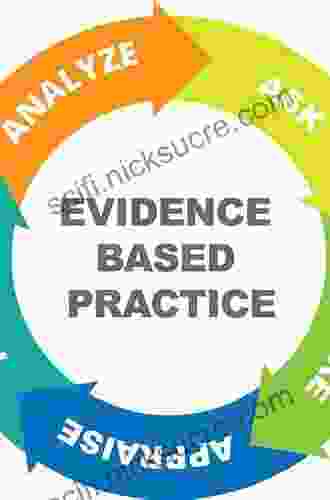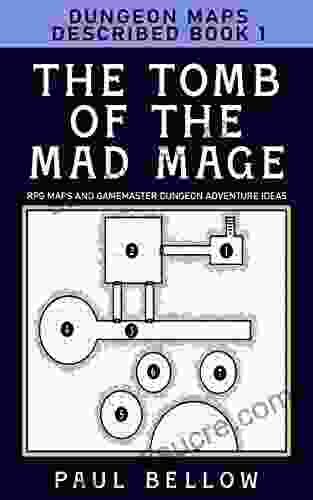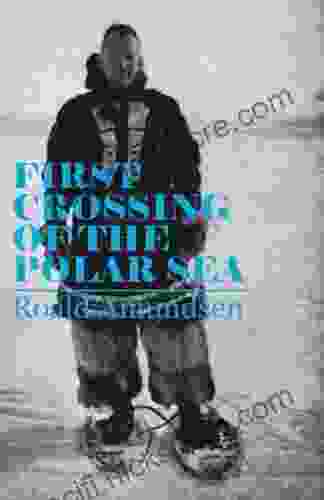Understanding Medical Education Evidence Theory and Practice: A Comprehensive Guide

Medical Education encompasses the teaching and learning of medicine to healthcare professionals. It is a complex and multifaceted field that draws on evidence from various disciplines, including education, psychology, and medicine. Understanding the theory and practice of medical education is crucial for designing and implementing effective medical education programs.
4.3 out of 5
| Language | : | English |
| File size | : | 26689 KB |
| Text-to-Speech | : | Enabled |
| Screen Reader | : | Supported |
| Enhanced typesetting | : | Enabled |
| Print length | : | 563 pages |
| Lending | : | Enabled |
Evidence Theory in Medical Education
Evidence theory provides a framework for using research evidence to inform medical education practice. It involves identifying, evaluating, and interpreting research findings to generate recommendations for improving medical education. The key principles of evidence theory include:
- Transparency: Evidence is publicly available and accessible for scrutiny.
- Validity: Evidence is collected using rigorous scientific methods that minimize bias.
- Reliability: Evidence is consistent and reproducible across different studies.
- Applicability: Evidence is relevant and useful to the specific medical education context.
li>Generalizability: Evidence applies to a broader population beyond the study participants.
Practice of Medical Education
The practice of medical education involves applying evidence-based principles to design and implement effective medical education programs. Key components of medical education practice include:
- Curriculum Design: Developing curricula that align with educational objectives and incorporate evidence-based instructional strategies.
- Teaching Methods: Selecting and utilizing teaching methods that promote active learning, critical thinking, and problem-solving skills.
- Assessment: Designing assessments that evaluate learners' knowledge, skills, and professional behaviors objectively and fairly.
- Faculty Development: Providing training and support for medical educators to enhance their teaching skills and content knowledge.
- Evaluation and Research: Conducting evaluations to monitor the effectiveness of medical education programs and conducting research to generate new evidence.
Integrating Evidence and Practice
Integrating evidence theory and practice is essential for optimizing medical education. This involves:
- Identifying the Evidence: Searching for and reviewing relevant research literature to identify evidence-based practices.
- Evaluating the Evidence: Assessing the quality and applicability of the evidence using established criteria.
- Applying the Evidence: Adapting and implementing evidence-based practices in the medical education setting.
- Evaluling the Impact: Regularly monitoring the effectiveness of evidence-based practices and making adjustments as needed.
Challenges and Future Directions
Medical education faces several challenges in integrating evidence theory and practice, including:
- Limited Evidence: There is a lack of high-quality evidence in some areas of medical education, requiring careful interpretation and extrapolation.
- Contextual Factors: Medical education programs vary in their resources, culture, and student population, which can affect the applicability of evidence.
- Faculty Resistance: Some educators may be resistant to change or unfamiliar with evidence-based practices, hindering implementation.
Future directions for medical education include:
- Increased Research: Conducting more rigorous research to generate high-quality evidence in understudied areas.
- Evidence Synthesis: Developing systematic reviews and meta-analyses to summarize and interpret existing evidence.
- Faculty Training: Providing professional development opportunities for medical educators to enhance their evidence-based teaching skills.
- Collaboration: Fostering collaboration between researchers, educators, and policymakers to translate evidence into practice.
Understanding medical education evidence theory and practice is paramount for improving the quality of medical education. By integrating evidence into practice, educators can ensure that medical education programs are effective, innovative, and responsive to the evolving needs of healthcare professionals and patients.
4.3 out of 5
| Language | : | English |
| File size | : | 26689 KB |
| Text-to-Speech | : | Enabled |
| Screen Reader | : | Supported |
| Enhanced typesetting | : | Enabled |
| Print length | : | 563 pages |
| Lending | : | Enabled |
Do you want to contribute by writing guest posts on this blog?
Please contact us and send us a resume of previous articles that you have written.
 Fiction
Fiction Non Fiction
Non Fiction Romance
Romance Mystery
Mystery Thriller
Thriller SciFi
SciFi Fantasy
Fantasy Horror
Horror Biography
Biography Selfhelp
Selfhelp Business
Business History
History Classics
Classics Poetry
Poetry Childrens
Childrens Young Adult
Young Adult Educational
Educational Cooking
Cooking Travel
Travel Lifestyle
Lifestyle Spirituality
Spirituality Health
Health Fitness
Fitness Technology
Technology Science
Science Arts
Arts Crafts
Crafts DIY
DIY Gardening
Gardening Petcare
Petcare S Connolly
S Connolly Nicholas Bjorn
Nicholas Bjorn Brook Waters
Brook Waters Art Smith
Art Smith Kelly Koerner
Kelly Koerner Oluwatosin Adebanjo Ore
Oluwatosin Adebanjo Ore Marley Dias
Marley Dias David Mayer
David Mayer Julie Dubrouillet
Julie Dubrouillet Tracy Deonn
Tracy Deonn Ruth M Tappen
Ruth M Tappen Lyn Millner
Lyn Millner Malcolm Williams
Malcolm Williams Tania Marshall
Tania Marshall Kiera Cass
Kiera Cass Lisa Mckay
Lisa Mckay Jen Rose Smith
Jen Rose Smith Mahzarin R Banaji
Mahzarin R Banaji Ed Viesturs
Ed Viesturs Luke Jackson
Luke Jackson Eva Ibbotson
Eva Ibbotson Marion Zimmer Bradley
Marion Zimmer Bradley Felix Bittmann
Felix Bittmann Lieven Vandenberghe
Lieven Vandenberghe Scarlett Thomas
Scarlett Thomas Jeff Carreira
Jeff Carreira Aaron Oster
Aaron Oster John Sabino
John Sabino Frank Giampaolo
Frank Giampaolo Michael Hoy
Michael Hoy Jack Henderson
Jack Henderson Tao Le
Tao Le John Andrisani
John Andrisani David Sammel
David Sammel Blessing Agunloye
Blessing Agunloye David L Cook
David L Cook David Cockburn
David Cockburn Harmon Cooper
Harmon Cooper Kindle Edition
Kindle Edition Dr Ray Makar
Dr Ray Makar Leigh Calvez
Leigh Calvez Diane Ehrensaft
Diane Ehrensaft Fodor S Travel Guides
Fodor S Travel Guides J M Hofer
J M Hofer Sam Dogra
Sam Dogra Herbert Wolverson
Herbert Wolverson Jim Wilson
Jim Wilson Rinoa
Rinoa United States Government Us Army
United States Government Us Army Katherine A Dettwyler
Katherine A Dettwyler Diondre Mompoint
Diondre Mompoint Jason Brown
Jason Brown Jimmy Roberts
Jimmy Roberts Chris Cheng
Chris Cheng Nick Muxlow
Nick Muxlow Cal Pater
Cal Pater Angela Stevens
Angela Stevens Christie Aschwanden
Christie Aschwanden Mathew Tekulsky
Mathew Tekulsky Bob Harig
Bob Harig Julietta Suzuki
Julietta Suzuki Laura Freberg
Laura Freberg Ted Kerasote
Ted Kerasote Jared Hargrave
Jared Hargrave Carol Mccloud
Carol Mccloud John Mccollister
John Mccollister Sherman Alexie
Sherman Alexie Karen George
Karen George Logan Thompson
Logan Thompson 1st Ed 2019 Edition Kindle Edition
1st Ed 2019 Edition Kindle Edition Haider Warraich
Haider Warraich David Christian
David Christian Nurse Academy
Nurse Academy Timothy Alberino
Timothy Alberino Matthias Biehl
Matthias Biehl Booksumo Press
Booksumo Press Guy Gavriel Kay
Guy Gavriel Kay 1st Edition Kindle Edition
1st Edition Kindle Edition Charles H Townes
Charles H Townes Martin Gardner
Martin Gardner Lianna Marie
Lianna Marie Lee Mcintyre
Lee Mcintyre Elizabeth Bishop
Elizabeth Bishop Fr Vincent Lampert
Fr Vincent Lampert Christine Lion
Christine Lion Bill Nowlin
Bill Nowlin L Waxy Gregoire
L Waxy Gregoire Craig Callender
Craig Callender Breann Blehm
Breann Blehm Corinne Brown
Corinne Brown Hecateus Apuliensis
Hecateus Apuliensis Borja Loma Barrie
Borja Loma Barrie Jack Whyte
Jack Whyte Cliff Jacobson
Cliff Jacobson Kim Heldman
Kim Heldman Charles Hooton
Charles Hooton Alan Anderson
Alan Anderson Daniel Friebe
Daniel Friebe Michael Kulikowski
Michael Kulikowski Lynn E Ponton
Lynn E Ponton Theodore Dalrymple
Theodore Dalrymple Jacqueline Kelleher
Jacqueline Kelleher Iskcon Revival Movement
Iskcon Revival Movement Robert T Pennock
Robert T Pennock Chuck Carlson
Chuck Carlson John Skinner
John Skinner Karen Gershowitz
Karen Gershowitz Sigmund Freud
Sigmund Freud House Of Talent
House Of Talent David Seidman
David Seidman Dan Wowak
Dan Wowak Raghuram Rajan
Raghuram Rajan Carrie Rogers Whitehead
Carrie Rogers Whitehead Tobias Macey
Tobias Macey Kevin Williams
Kevin Williams Leah Hager Cohen
Leah Hager Cohen Nancy H Diepenbrock
Nancy H Diepenbrock Su Ad Abdul Khabeer
Su Ad Abdul Khabeer Roland Nyns
Roland Nyns Glen Mourning
Glen Mourning Mami Wata
Mami Wata Hettie Brittz
Hettie Brittz Helen Corcoran
Helen Corcoran Donald Hanley
Donald Hanley Jason Thalken
Jason Thalken Nando Parrado
Nando Parrado Clinton Dobbins
Clinton Dobbins Sevki Kuruoglu
Sevki Kuruoglu Michelle Garnett
Michelle Garnett Paul Orland
Paul Orland 1st Ed 2020 Edition Kindle Edition
1st Ed 2020 Edition Kindle Edition Simeon Wright
Simeon Wright Martin Toms
Martin Toms Doris Pilkington
Doris Pilkington Melissa Marr
Melissa Marr Tom Bisio
Tom Bisio Joe Hendershott
Joe Hendershott Jennifer Pastiloff
Jennifer Pastiloff Hugh Marriott
Hugh Marriott Sally Moran
Sally Moran Norm Flayderman
Norm Flayderman Charles Johnson
Charles Johnson Lewis Smile
Lewis Smile Sacha Koborsi Tadros
Sacha Koborsi Tadros James Kaiser
James Kaiser James Oseland
James Oseland Ceara Comeau
Ceara Comeau Mia Reyes
Mia Reyes Josephine Diebitsch Peary
Josephine Diebitsch Peary Richard Grant
Richard Grant Print Replica Kindle Edition
Print Replica Kindle Edition Jane Adams
Jane Adams Tara Lazar
Tara Lazar Mike Evans
Mike Evans Brian Libby
Brian Libby Joni Levine
Joni Levine Jessica Mayer Koren
Jessica Mayer Koren Maggie Smith
Maggie Smith Jeannie Tyrrell
Jeannie Tyrrell Bob Thomas
Bob Thomas Tom Billinge
Tom Billinge Tiffany Loggins Psyd
Tiffany Loggins Psyd Sleiman Azizi
Sleiman Azizi Bradley Garrett
Bradley Garrett Kevin C Kelleher Md Md
Kevin C Kelleher Md Md Ronald D Mcelroy
Ronald D Mcelroy Jerry A Coyne
Jerry A Coyne Philip Kramer
Philip Kramer Nikki Glandon
Nikki Glandon Loralee Leavitt
Loralee Leavitt Tom Mccoy
Tom Mccoy Serena Williams
Serena Williams Robert T Kiyosaki
Robert T Kiyosaki Michael Conway
Michael Conway Pedro Urvi
Pedro Urvi Richard Headstrom
Richard Headstrom Robert Fisher
Robert Fisher William R Miller
William R Miller Peter Mcdougall
Peter Mcdougall David Wescott
David Wescott Michael Inden
Michael Inden Ziya Tong
Ziya Tong Immigration Consult
Immigration Consult Daniel Isberner
Daniel Isberner Holly Black
Holly Black Mark E Johnson
Mark E Johnson Elena Kryuchkova
Elena Kryuchkova Jimmy Cornell
Jimmy Cornell Greg Wolfe
Greg Wolfe Greg Mcmillan
Greg Mcmillan Matt Davids
Matt Davids Tiffany Vincent
Tiffany Vincent Carlo Zen
Carlo Zen Jim Murphy
Jim Murphy Michael Kodas
Michael Kodas Staff Of The Harvard Crimson
Staff Of The Harvard Crimson Monica Mcgoldrick
Monica Mcgoldrick Becca Anderson
Becca Anderson National Fastpitch Coaches Association
National Fastpitch Coaches Association Bob Forman
Bob Forman Catherine Ryan Gregory
Catherine Ryan Gregory Michael Eric Dyson
Michael Eric Dyson Jack Cavanaugh
Jack Cavanaugh Lori Foster
Lori Foster Jim Thompson
Jim Thompson Emma Fick
Emma Fick Susanna Heli
Susanna Heli Mones Abu Asab
Mones Abu Asab Tracy Moore
Tracy Moore Bob Motley
Bob Motley Richard J Foster
Richard J Foster Daniel Kahneman
Daniel Kahneman Roger Kopanycia
Roger Kopanycia Cindy C Bennett
Cindy C Bennett Rob Walker
Rob Walker Shane Burcaw
Shane Burcaw Laura J Snyder
Laura J Snyder Brenda Hiatt
Brenda Hiatt Rachel Burgess
Rachel Burgess Fran Davis
Fran Davis Zola Levitt
Zola Levitt Cecilia Chrapkowska
Cecilia Chrapkowska Mary J Macleod
Mary J Macleod Rohan Agarwal
Rohan Agarwal Larry Pardey
Larry Pardey Three Over Eight Learning
Three Over Eight Learning N M J Woodhouse
N M J Woodhouse Rand Cardwell
Rand Cardwell Lewis Morris
Lewis Morris Brian Zepka
Brian Zepka Xiran Jay Zhao
Xiran Jay Zhao James Mooney
James Mooney Sandra Brown
Sandra Brown Phillip Stephen Schulz
Phillip Stephen Schulz Collegiate Learning
Collegiate Learning Pamela A Hays
Pamela A Hays Paula Petrella
Paula Petrella William Shakespeare
William Shakespeare Stephanie J Scott
Stephanie J Scott Terri Jean
Terri Jean Robert Courland
Robert Courland George Heineman
George Heineman Nicole Howard
Nicole Howard Patrisia Gonzales
Patrisia Gonzales Derek Johnson
Derek Johnson Lowell Skoog
Lowell Skoog Jody Hedlund
Jody Hedlund Julia Englund Strait Phd
Julia Englund Strait Phd Summer Batte
Summer Batte Carol A Dahir
Carol A Dahir Linda Fairley
Linda Fairley William Spencer
William Spencer Barry Lewis
Barry Lewis Brittany Noelle
Brittany Noelle Huan Yang
Huan Yang Haruki Murakami
Haruki Murakami David Franklin
David Franklin Connecticut Forest And Park Association
Connecticut Forest And Park Association Jonathan Howard Md
Jonathan Howard Md Kayvan Shokrollahi
Kayvan Shokrollahi John Gierach
John Gierach James Morgan Ayres
James Morgan Ayres Lawrence M Krauss
Lawrence M Krauss Bob Morris
Bob Morris Second Edition New Edition Updated Revised...
Second Edition New Edition Updated Revised... Julie Des Jardins
Julie Des Jardins Bob Gaines
Bob Gaines Robin Moore
Robin Moore John Horgan
John Horgan Jane Watkins
Jane Watkins Steven A Finkler
Steven A Finkler Cheryl Marlene
Cheryl Marlene Stuart Firestein
Stuart Firestein N L Mclaughlin
N L Mclaughlin Daphne Adler
Daphne Adler Jill Krause
Jill Krause Ed Gruver
Ed Gruver Jennifer Niven
Jennifer Niven Julia Shaw
Julia Shaw Fiona Danks
Fiona Danks Derek Cheung
Derek Cheung Scott Waldie
Scott Waldie Theodore Gray
Theodore Gray Sifu Slim
Sifu Slim Mark Vonnegut
Mark Vonnegut Jakub Marian
Jakub Marian Matthew Cronin
Matthew Cronin Lewis Howes
Lewis Howes Zecharia Sitchin
Zecharia Sitchin Luke Humphrey
Luke Humphrey Sheila Willcox
Sheila Willcox George G Morgan
George G Morgan Gary Letcher
Gary Letcher 1st Ed 2021 Edition Kindle Edition
1st Ed 2021 Edition Kindle Edition Nate Schweber
Nate Schweber Joe Tasker
Joe Tasker Fred Medina
Fred Medina Rod Baker
Rod Baker Bruce Sutherland
Bruce Sutherland Peter Ralston
Peter Ralston Tania Aebi
Tania Aebi Tom Stienstra
Tom Stienstra Sharon M Ravitch
Sharon M Ravitch Gregg Michaelsen
Gregg Michaelsen Ross Mccluney
Ross Mccluney Julie Kratz
Julie Kratz Kevin Ticen
Kevin Ticen Steve Leonard
Steve Leonard Jill Margaret Shulman
Jill Margaret Shulman Bobbi Conner
Bobbi Conner James Lovegrove
James Lovegrove Jennie Naidoo
Jennie Naidoo Laurence D Houlgate
Laurence D Houlgate Ron Woldoff
Ron Woldoff John V Petrocelli
John V Petrocelli Ricardo Pompa
Ricardo Pompa Peter Byrne
Peter Byrne Mantak Chia
Mantak Chia Elena Lawson
Elena Lawson Christopher Setterlund
Christopher Setterlund Robert J Sternberg
Robert J Sternberg Jennifer Boyle
Jennifer Boyle Lynn A Struve
Lynn A Struve Lola Glass
Lola Glass Elizabeth Hay
Elizabeth Hay Melissa Gomes
Melissa Gomes Language Guru
Language Guru Bridie Gallagher
Bridie Gallagher Eric R Dodge
Eric R Dodge Bill Nason
Bill Nason Bradley Mayhew
Bradley Mayhew Janet Evanovich
Janet Evanovich Brendan Donley
Brendan Donley Mark Rashid
Mark Rashid Smart Reads
Smart Reads Lynn Rosen
Lynn Rosen Selma H Fraiberg
Selma H Fraiberg Diane Sticks Harsha
Diane Sticks Harsha Marc Silver
Marc Silver Sylvia Mercedes
Sylvia Mercedes Diane Ravitch
Diane Ravitch Jayne Storey
Jayne Storey Wendy Suzuki
Wendy Suzuki Eduardo Montano
Eduardo Montano Tim Swanwick
Tim Swanwick Django Wexler
Django Wexler Joseph Campbell
Joseph Campbell Pat Harvey
Pat Harvey Alan Pearce
Alan Pearce Stephen Armstrong
Stephen Armstrong David Murray
David Murray Asaf Rozanes
Asaf Rozanes Gordon H Chang
Gordon H Chang Rick Sapp
Rick Sapp Ian Tuhovsky
Ian Tuhovsky Dinesh Kumar Goyal
Dinesh Kumar Goyal Lou Kasischke
Lou Kasischke Kathryn Mcelroy
Kathryn Mcelroy Lisa Takeuchi Cullen
Lisa Takeuchi Cullen Culture Smart
Culture Smart Steven Trustrum
Steven Trustrum Kazumi Tabata
Kazumi Tabata Rachel Marie Martin
Rachel Marie Martin Jennifer L Lopez
Jennifer L Lopez Dan Hamilton
Dan Hamilton Brad Walker
Brad Walker Dave Pine
Dave Pine Zach Alexander
Zach Alexander Don Currie
Don Currie Scott Wilson
Scott Wilson Peter N Peregrine
Peter N Peregrine Curt Sampson
Curt Sampson Raymond Barrett
Raymond Barrett Jason R Briggs
Jason R Briggs Dr Barbara Sorrels
Dr Barbara Sorrels Mark W Gaither
Mark W Gaither Antti Laaksonen
Antti Laaksonen Leo Baker
Leo Baker Philip Slayton
Philip Slayton Dr Aviva Legatt
Dr Aviva Legatt Jorge Croda
Jorge Croda Kristin Plain
Kristin Plain Nfhs
Nfhs Jacob Paul Patchen
Jacob Paul Patchen William Pitts
William Pitts Francis Jonah
Francis Jonah Karen Ehman
Karen Ehman Shaana Berman
Shaana Berman Michael R Canfield
Michael R Canfield Philip A Moore
Philip A Moore Terry Mcmillan
Terry Mcmillan Jerry Darkes
Jerry Darkes Candace Walsh
Candace Walsh Randall M Rueff
Randall M Rueff Robert Farris Thompson
Robert Farris Thompson James Mcmullan
James Mcmullan Dan Gable
Dan Gable Lily Field
Lily Field Jessica Holsman
Jessica Holsman Camille Soulier
Camille Soulier Robert Young Pelton
Robert Young Pelton Sian O Gorman
Sian O Gorman Michael Loynd
Michael Loynd Ed Palattella
Ed Palattella James Atkinson
James Atkinson Bob Miller
Bob Miller Bob Meehan
Bob Meehan Graham Denton
Graham Denton Matt Harrison
Matt Harrison Darwin V Ellis
Darwin V Ellis Detlev Piltz
Detlev Piltz Tehlor Kay Mejia
Tehlor Kay Mejia Marc P Steinberg
Marc P Steinberg Deirdre A Scaggs
Deirdre A Scaggs George M Church
George M Church Maia Weinstock
Maia Weinstock Luisa Magarian
Luisa Magarian Yaron Seidman
Yaron Seidman Tony Hansen
Tony Hansen Bob Brister
Bob Brister Katherine Roberts
Katherine Roberts Bruce Kershner
Bruce Kershner Kenneth C Roebuck
Kenneth C Roebuck Teresa Denton
Teresa Denton Grace Elizabeth Hale
Grace Elizabeth Hale Monica Gribben
Monica Gribben Paul Bellow
Paul Bellow Jennifer Mccully
Jennifer Mccully Charmaine Mckissock
Charmaine Mckissock Richard Bach
Richard Bach Karen Le Billon
Karen Le Billon Megan Miller
Megan Miller Chantal Sicile Kira
Chantal Sicile Kira Jodi Magness
Jodi Magness Michele Riva
Michele Riva Taste Of Home
Taste Of Home Christian Smith
Christian Smith Silvan S Schweber
Silvan S Schweber Priscilla T Brown
Priscilla T Brown Richard Williams
Richard Williams Mary Beard
Mary Beard Joanna Breyer
Joanna Breyer Paddy Ashdown
Paddy Ashdown James Duggan
James Duggan Gao Yisheng
Gao Yisheng James R Evans
James R Evans Peter Nabokov
Peter Nabokov Sergey K Aityan
Sergey K Aityan Russell Bryant
Russell Bryant
Light bulbAdvertise smarter! Our strategic ad space ensures maximum exposure. Reserve your spot today!

 Aldous HuxleyThe Importance of Cursive Handwriting for Kids: A Comprehensive Guide for...
Aldous HuxleyThe Importance of Cursive Handwriting for Kids: A Comprehensive Guide for...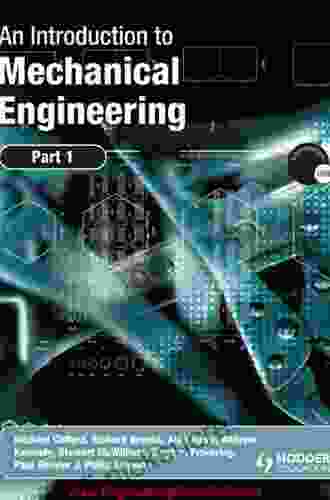
 Wayne CarterAn Introduction to Mechanical Engineering: Delving into the Realm of Machines
Wayne CarterAn Introduction to Mechanical Engineering: Delving into the Realm of Machines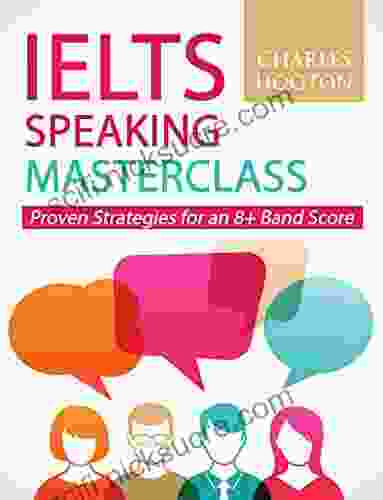
 Christian CarterUnlocking the Secrets: Proven Strategies for Achieving a High IELTS Band...
Christian CarterUnlocking the Secrets: Proven Strategies for Achieving a High IELTS Band... Brody PowellFollow ·2.2k
Brody PowellFollow ·2.2k Carl WalkerFollow ·12.9k
Carl WalkerFollow ·12.9k Victor HugoFollow ·14.2k
Victor HugoFollow ·14.2k Victor TurnerFollow ·4.7k
Victor TurnerFollow ·4.7k Jackson BlairFollow ·16.2k
Jackson BlairFollow ·16.2k Lawrence BellFollow ·2.6k
Lawrence BellFollow ·2.6k Roald DahlFollow ·9.6k
Roald DahlFollow ·9.6k Charlie ScottFollow ·7.3k
Charlie ScottFollow ·7.3k

 Dennis Hayes
Dennis HayesMystic Legend and His Epic Crusade Into the New World: A...
The story of Mystic Legend is...

 Braden Ward
Braden WardThe Wandering Fire: A Captivating Fantasy Epic in the...
: A Realm of Enchantment and...

 Nathaniel Hawthorne
Nathaniel HawthorneStarstruck Brenda Hiatt: A Journey to Stardom
Brenda Hiatt's journey to...

 Clark Campbell
Clark Campbell50 Enchanting Towns and Cities for Your Fantasy Tabletop...
Are you a dungeon master looking for the...

 W.B. Yeats
W.B. Yeats15 Natural Ways to Fix PCOS (Polycystic Ovary Syndrome)
Polycystic ovary syndrome (PCOS) is a hormonal...
4.3 out of 5
| Language | : | English |
| File size | : | 26689 KB |
| Text-to-Speech | : | Enabled |
| Screen Reader | : | Supported |
| Enhanced typesetting | : | Enabled |
| Print length | : | 563 pages |
| Lending | : | Enabled |


